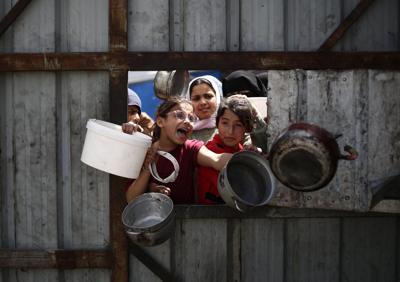April 7, 2025

As Canadians head into the federal election, much has been made of the key issues shaping the campaign: affordability, national security, trade and foreign relations. But one issue cuts across all of these — Gaza.
At first glance, many Canadians may see Gaza as a foreign issue, far removed from their daily lives. But it isn’t. The principles at stake in Gaza — respect for international law, human rights and the rules-based order — are the same principles that protect Canada in trade, security, and foreign policy.
Canada exists and thrives in a world where international law is respected. Our trade relationships, national security and economic stability depend on a rules-based order where smaller countries are not pushed aside by the whims of the powerful.
This is precisely why U.S. President Donald Trump is seen as a threat to Canada. His disregard for trade agreements, alliances and global norms puts Canadian industries, jobs and sovereignty at risk. The same logic applies to Gaza. If we allow powerful nations to violate international law with impunity, we weaken the very system that protects Canada’s interests.

Gaza is not just about human rights — it is a litmus test for whether rules still matter in international politics. If we let violations of international law slide there, what stops it from happening elsewhere? When Trump disregards trade rules to impose tariffs on Canada, we call it out because we know it threatens our economy. The same principle applies to Gaza — ignoring these violations today only emboldens further disregard for the rules tomorrow.
Since Oct. 7, Canadian Muslims and Arabs have felt the impact first hand — job losses, blacklisting, arrests and repression for advocating Palestinian rights. Palestinian-Canadians face immigration barriers for loved ones while other communities receive swift support. As anti-Palestinian racism and Islamophobia rise, government leaders remain silent.
This isn’t just one community’s problem — erosion of rights anywhere is a threat to rights everywhere. Silencing Palestinian advocates today sets a precedent that could target labour activists, environmentalists, social conservatives, or anyone challenging government policies tomorrow.
The U.S. election has already shown the power of voters taking a stand. In Michigan, Muslim voters shocked the political establishment by refusing to back an administration that enabled genocide in Gaza, even at the risk of Trump’s return. It was a difficult choice, but it forced a political reckoning.
Canada’s democratic system is different. We elect a prime minister who we believe is best at addressing issues impacting our country. But we also elect MPs riding by riding, giving voters the power to hold individual candidates accountable. We must also consider whether the change in Liberal leadership has created an opportunity for renewed dialogue.
Politicians cannot ask for votes while ignoring Gaza. A principled, issue-based approach ensures we elect a Parliament with representatives committed to international rule of law and human rights and protecting Canada from both present and future external threats.
For over a decade, Canadian Muslim voter turnout has steadily increased. The question is no longer if they will vote, but how. This isn’t about party loyalty — it’s about electing candidates who stand up for human rights, civil liberties and free expression at home and abroad. This election, the Canadian Muslim Public Affairs Council launched MuslimsVote.ca to help voters make an informed, principled choice.
More and more Canadians want leadership that upholds human rights, defends international law and protects Canada’s role in a stable global order. A recent Mainstreet Research poll found that 55 per cent of Canadians (Muslim and non-Muslim) support an arms export ban to Israel, 49 per cent favour expanding it and 56 per cent back enforcing an ICC warrant for Netanyahu.
And yet, Canada’s political leaders are hesitant to confront this issue, despite growing public support for accountability.
Gaza is not just a foreign issue. It is a test of our values, our democracy and our place in the world. And in this election, we all have a choice to make.
By Khaled Al-Qazzaz Contributor
Khaled Al-Qazzaz is the executive director of the Canadian Muslim Public Affairs Council.